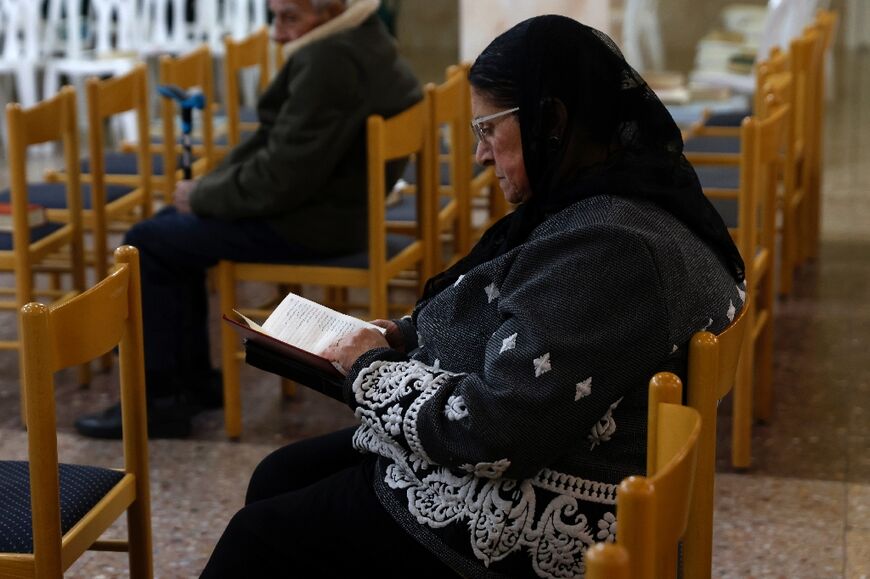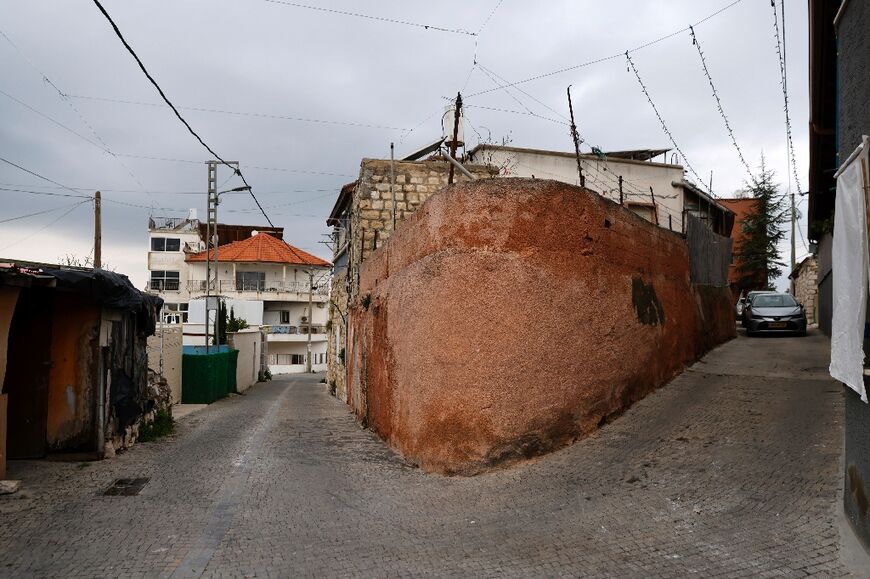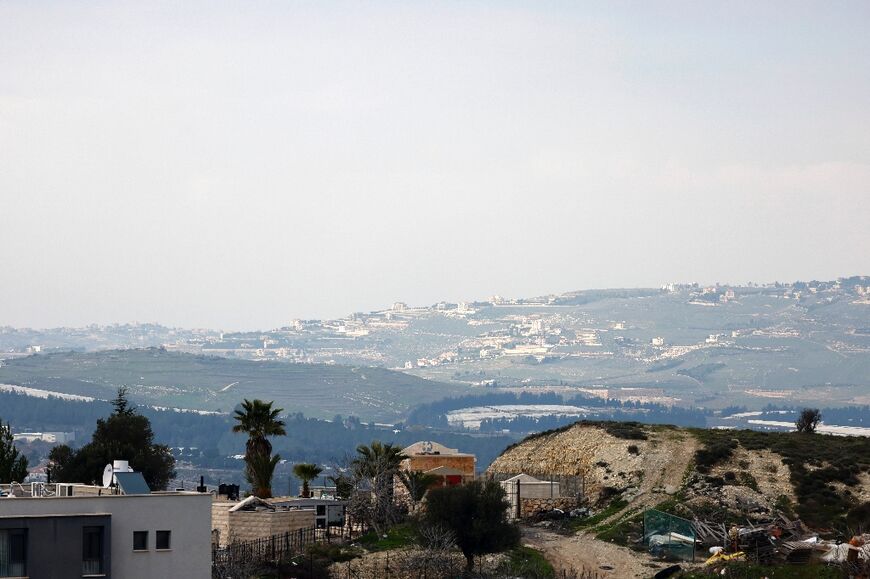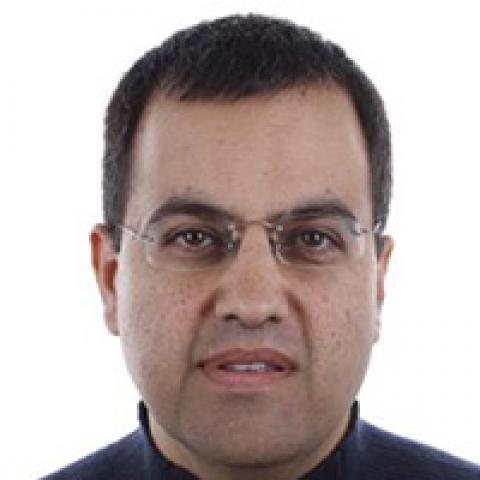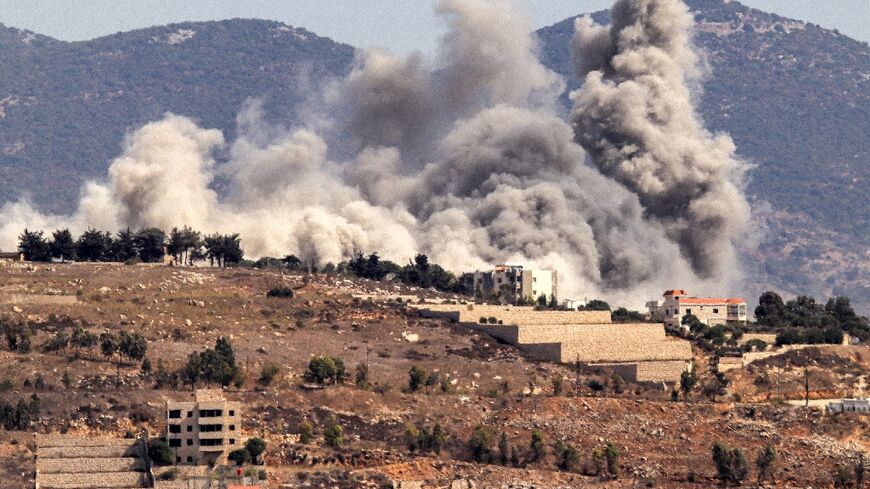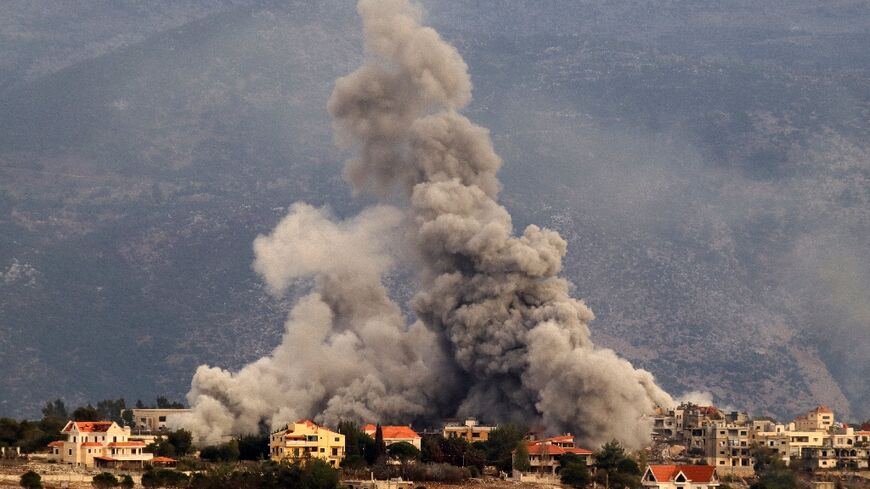Christians adapt to conflict on Israel-Lebanon frontier

The SUVs roll to a halt, the pupils run from the room and hop in, the parents speed away -- just like a normal school run, only this was in a bomb shelter.
It's been this way in Jish, an Israeli village with a majority Christian population a stone's throw from the Lebanon border, since the October 7 attack by Hamas on Israel.
Israel's retaliatory strikes and ground invasion of Gaza prompted Lebanese Hezbollah to fire repeatedly at Israel.
Locals have endured three months of thudding artillery, thrumming drones and wailing sirens, while Israel launches daily strikes on southern Lebanon.
School buildings are shut and teaching is now online or in public shelters.
"Studying in the shelter is terribly difficult for the children," said 75-year-old Margaret Ashur, there to grab her grandson.
Ashur has lived in Jish all her life and said she cannot remember a time like this.
At least 190 people have been killed in Lebanon during in the latest violence including more than 140 Hezbollah fighters, according to an AFP tally.
In northern Israel, nine soldiers and six civilians have been killed, according to Israeli authorities.
The military action is not nearly as intense as in Gaza, nor the 2006 war between Israel and Hezbollah, though this is of little comfort to Jish residents.
"The community is still here," said Shadi Khalloul, who runs the Israeli Christian Aramaic NGO, a group who pushes the rights of Maronites.
"They will not go and leave their own towns just because Hezbollah decided to attack Israel," he added.
The border area has been largely emptied of its residents, but Jish sits just outside the evacuation zone declared by Israeli authorities.
- 'Peace will reign' -
The village has ground to a halt -- large gatherings and events are banned because of the risk -- and the church is about the only place left to go.
"Since the war began, we've stopped praying in our big church," said Father Sandy Habib.
Over Christmas, a rocket hit a church just a few kilometres (miles) from Jish where services are now held in a meeting room below the main building.
Habib's church has rolled back community programmes and activities for children, but Habib said it was vital to keep daily services going.
"It gives people hope that peace will come and peace will reign, that's why we're praying," he said.
The Maronites are largely based in Lebanon with only a few thousand in Israel.
They make up half the population of Jish, a higgledy-piggledy village of roughly 3,000 people whose houses and churches cling to a hillside dotted with olive groves.
Khalloul, 48, has spent years campaigning for greater recognition in Israel, including successfully getting Maronites their own legal designation.
He also promoted teaching Aramaic, the language spoken by Jesus.
But like everyone else, his work has stalled over the past three months.
- Fears of militants attacking -
Jish is steeped in religious history, changing hands between Jewish, Muslim and Christian populations over the centuries.
Many of the Maronites in the village, including Khalloul's family, were forced from their homes in nearby villages during the war which accompanied the 1948 creation of Israel.
Israeli authorities said they would be allowed to return home within weeks, but the military razed it and the families of former residents have been banned from going back.
Despite this, Khalloul served in the Israeli military and encourages young Maronites to enlist.
He wants to see the fight ramped up against the Islamist enemies he sees ganging up against Israel across the region.
"We saw what Hamas did and they're a proxy of Iran," like Hezbollah, Khalloul said.
"Here on the border the fear is of an incursion by elite units of Hezbollah, who will do atrocities against us just as was done in the south to the Jewish people," he added.
The October 7 attack by Hamas militants resulted in the deaths of about 1,140 people in Israel, most of them civilians, according to an AFP tally based on official figures.
Israel has vowed to destroy Hamas in response. Its relentless air and ground offensive has killed at least 24,620 Palestinians, mostly women and children, according to Gaza's health ministry.


